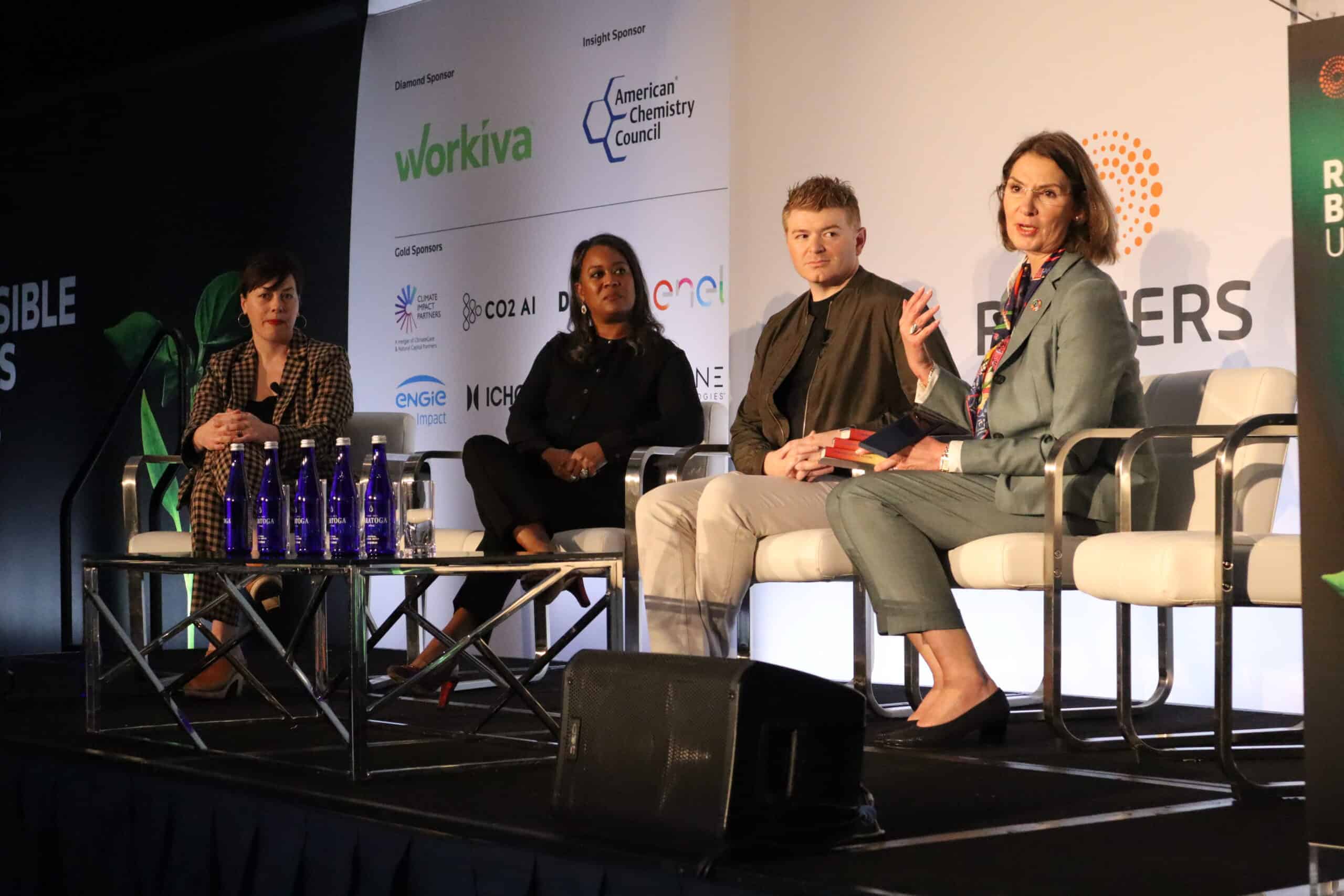
By Elvin Madamba and Jonathan Serravalle
This month, Reuters Events brought together industry leaders in New York City to discuss how companies can balance sustainability and success at Responsible Business USA 2023 .
Helle Bank Jorgensen, CEO and founder of Competent Boards, moderated two sessions during the two-day conference. Day one featured a panel discussion with Alison Whritenour, CEO of Seventh Generation; Jeffrey Whitford, Head of Sustainability and Social Business Innovation at MilliporeSigma; and Jennifer Hunter, Senior VP, Corporate Citizenship & Chief Sustainability Officer at Altria, who explored the topic of embedding sustainability across businesses. On the second day, it was a fireside chat with Eric Eve, CEO and Founder of Ichor Strategies, as he shared insights on sustaining action amid the growing politicization of sustainability.
Our key takeaways from the two-day event include:
- Respond to stakeholder pressure for sustainability. Companies must develop a blueprint for commercial success that includes transitioning to a net-positive business model. Stakeholder demands drive the need for immediate action.
- Transparency is the greatest disinfectant. Confidence in the global carbon market hinges on transparency. Accurate and accessible information on emissions reduction standards is vital for building trust.
- Embrace climate transition as an opportunity. With the SEC’s recent proposals on mandatory reporting, standardized sustainability reporting is becoming mainstream. Companies must prepare for new risks and requirements.
- Every job is a climate job. Integrating sustainability values into every role within a company is essential. Employees at all levels should consider how they can contribute to addressing climate issues and driving cultural change around sustainability.
- Sustainability is the business plan. Leverage high-quality data to convince stakeholders of the benefits and feasibility of sustainable practices. Focus on solutions that address customer needs and sustainable development.
- Involve investors in driving change. Leading CFOs are driving transformation and bringing new skills as finance becomes central to overseeing business transitions.
- Build partnerships for scale and a circular economy. Resilient supply chains are crucial for business competitiveness and achieving sustainability goals. Engage in open dialogues with suppliers to create mutually beneficial solutions.
- Don’t overlook the “S” in ESG. Compliance with international mandatory human rights due diligence reporting will impact US companies. Collaborate with NGOs to support and protect local communities and increase global visibility.
- Combine compliance and transformation in business strategy. Strive for consistent, comparable, and reliable sustainability data reporting while focusing on innovation and transformation.
- Integrate ESG into business operations. Involve key decision-makers like CFOs in the sign-off process for sustainability reports and use technology to streamline data collection and reporting processes.
Elvin Madamba is Competent Boards’ Program Manager, and Jonathan Serravalle is Competent Boards’ Climate Research Lead. Follow Competent Boards on LinkedIn.
Back To News & Views